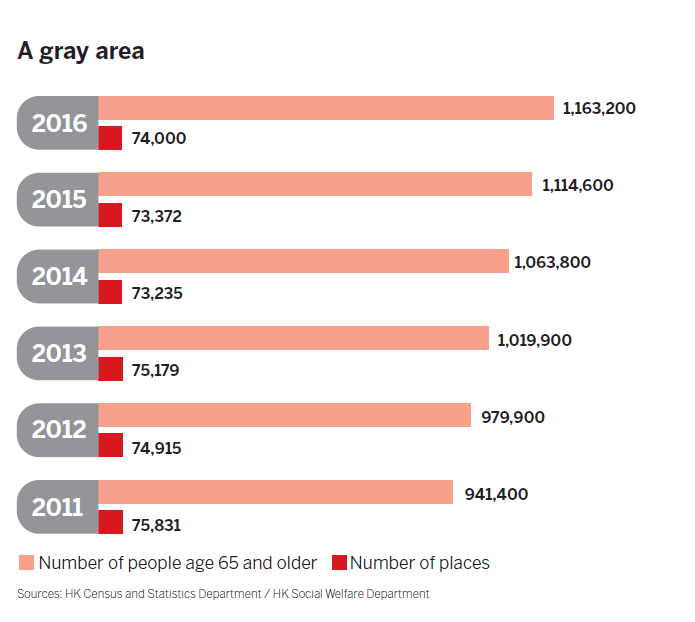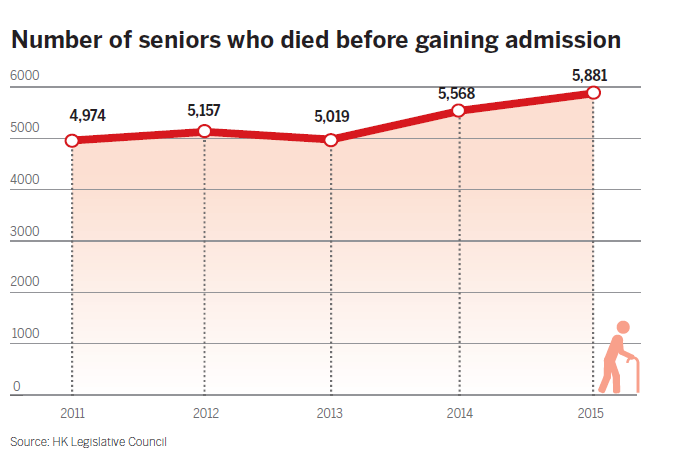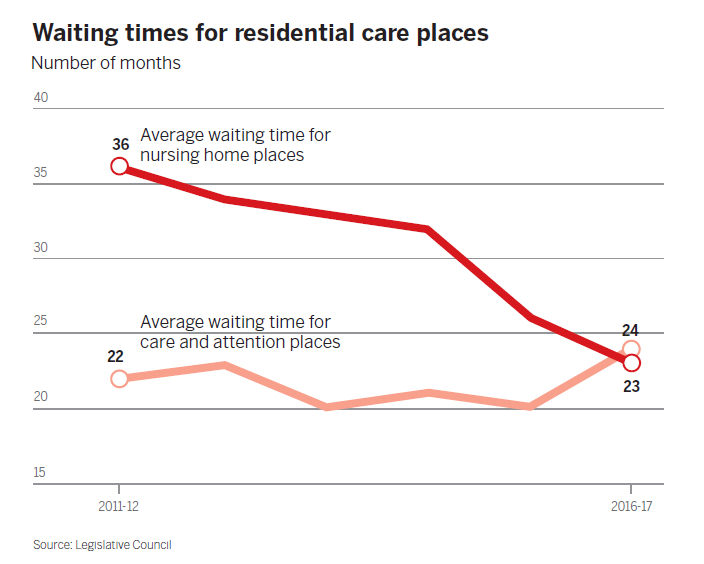Hong Kong's care system struggling to cope with aging population




Funding shortfall
The government has approached the issue on the principle of "aging in place as the core, institutional care as backup", meaning seniors should live at home whenever possible and receive care there, and should only enter care homes if absolutely necessary.
However, the policy requires a large amount of support from local communities, meaning the focus should be on greater provision of community care services, rather than residential care.
But community care services only received funding of about HK$1 billion ($127 million) in the financial year 2014-15. That's less than one-third the HK$3.9 billion spent on residential care services, according to a survey conducted by the Legislative Council and published in December 2015.
This underfunding took a toll on people such as Lam and his mother, who have to rely on community care services before they can obtain a place at a nursing home.
"If the community support is strengthened, there will be a chunk of elderly people who will not opt for nursing homes," Kwok said.
He added that community care support - services such as meal deliveries and household chores, and even some visiting medical services for seniors with chronic illnesses - is the weak link in the care ladder.
Care via community support programs is essential for the well-being of seniors recently discharged from hospital, and also allows them to delay moving into a nursing home.
According to Kwok, it makes more sense to subsidize elderly care in the community instead of pumping money into care homes. He noted that the government used to subsidize nursing homes, but the policy resulted in a mismatch of public resources.
"Those who can stay on the waiting list for a long time usually don't need that much care, while those who are in desperate need of care have to forget about the list and turn to private nursing homes," he said.
The policy may also exacerbate the effect of a rising elderly population and cause the long-standing list of seniors waiting for residential care services to snowball.
Under the government's centralized system, many seniors are eligible for the "dual option" of either residential or community care services, but in most cases, they opt for residential care services.
A University of Hong Kong study in 2009 showed that if the dual-option model were to be cancelled waiting times for residential care services would be cut and the line would disappear by 2013.
- China leads renewable energy jobs growth as Africa seeks green partners
- Jilin—1 GF07 satellite transmits high-resolution photo of Harbin's winter wonderland
- Infrared cameras film wild panda mother, cub in snow
- Expert: Private sector purchases key force supporting gold prices
- National observatory urges preparedness measures amid north China cold spell
- Chongqing celebrates wintersweet bloom with floriculture festival




































